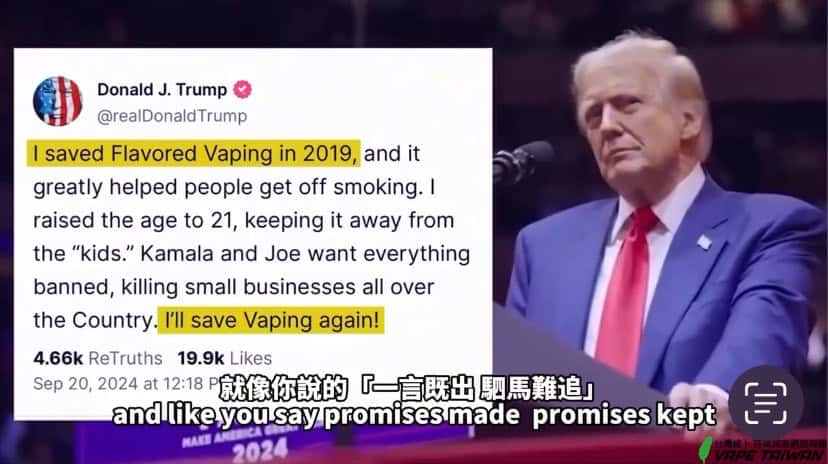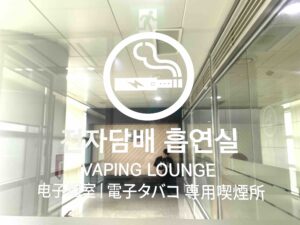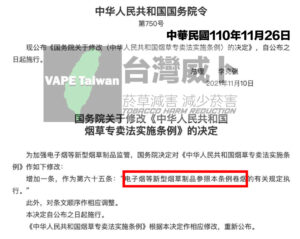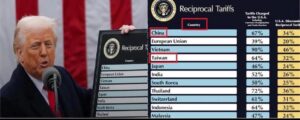Taiwan’s Vape Ban Undermines Lai Ching-te’s “Non-Red Supply Chain” Policy, Experts Urge Adoption of WHO’s Tobacco Harm Reduction Strategy

Since assuming the presidency, Lai Ching-te has actively promoted a “Non-Red Supply Chain” policy. However, Taiwan’s comprehensive ban on vaping has inadvertently fueled a massive black market dominated by illicit vape smuggled from China. On July 1, WHO tobacco harm reduction expert Yu-Yang Wang pointed out that the government’s continued prohibition has effectively allowed Chinese-made vaping products to monopolize Taiwan’s market, turning it into a “Red” business opportunity. He strongly urged the government to reference the World Health Organization’s tobacco harm reduction strategy by legalizing and developing a domestic e-cigarette industry to truly realize the vision of a smoke-free and healthy Taiwan.
Wang noted that China currently controls over 90% of the global e-cigarette manufacturing market. These products have contributed to vast black markets in countries like the United States and Mexico, and are even used by Mexican drug cartels and Chinese-linked enterprises as sources of illicit funding and violence. He emphasized that Taiwan’s blanket ban has not effectively reduced domestic tobacco use but instead encouraged smuggling, fostered a rampant underground market, hurt government tax revenues, and created serious governance challenges.
Citing a report by The Epoch Times, Wang stated that Mexican drug cartels such as the Sinaloa and Jalisco groups are using illegal Chinese vaping products as a new revenue stream, smuggling them into the U.S. through the same underground channels used for drugs and weapons, generating billions in illicit profits annually. He warned that if Taiwan maintains its stringent ban, it may soon face similar threats to public safety and health.
“We cannot simply prohibit; we must address the issue of vaping and heated tobacco products with a more pragmatic approach,” Wang said. He explained that many countries have effectively reduced tobacco harm by legalizing and taxing such products, thereby curbing the spread of black markets. He stressed that the WHO’s harm reduction strategy focuses on promoting alternative, lower-risk nicotine products as a means to gradually decrease traditional tobacco usage and achieve long-term public health goals.
Wang recommended that Taiwan urgently revise its laws to ease the vape ban and promote a legal and regulated vaping industry. Through strict hygiene and safety regulations, the quality and safety of products can be ensured. Only then can smuggling and black markets be truly eradicated, preventing the continued influx of illegal Chinese vaping products and safeguarding the core goals of President Lai’s proud “Non-Red Supply Chain” policy.
Further Reading:
- President Lai: Strengthening Taiwan’s Role in the “Non-Red Supply Chain”
https://udn.com/news/story/7238/8647698 - Expert Column: China-Mexico E-Cigarette Alliance Threatens U.S.
https://www.epochtimes.com/b5/25/6/29/n14541340.htm






